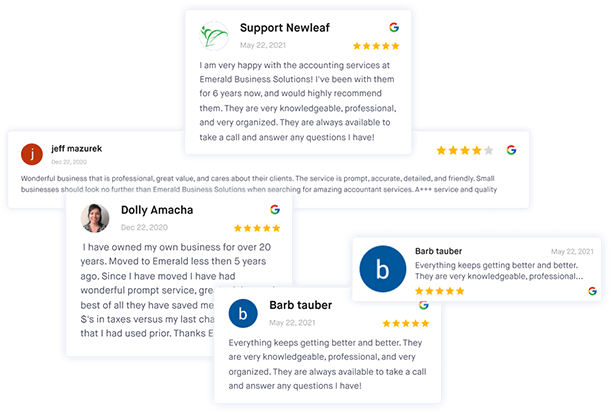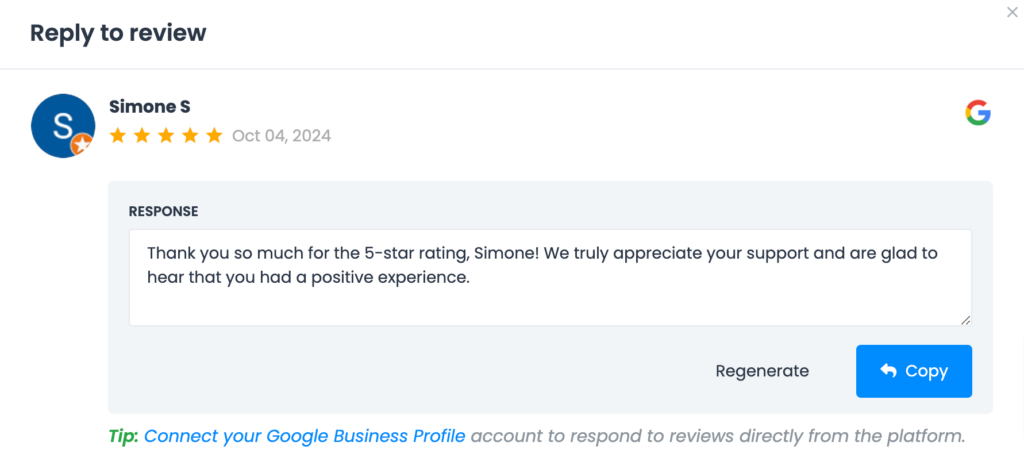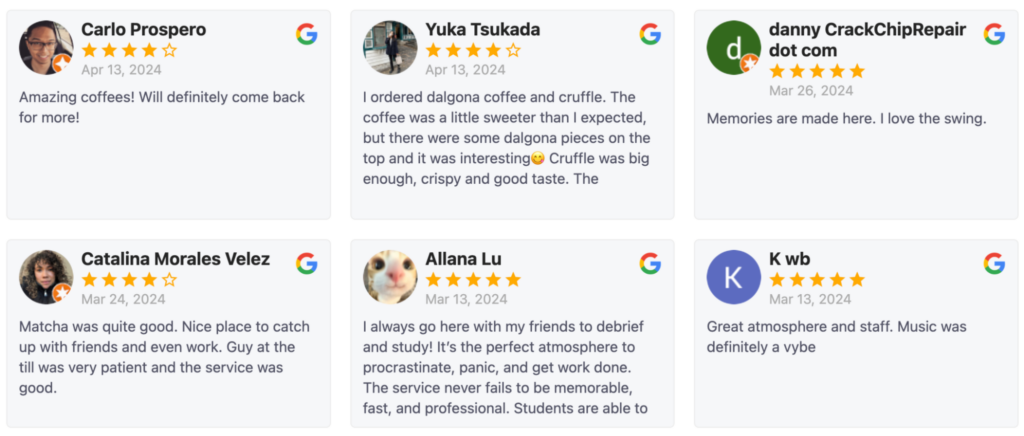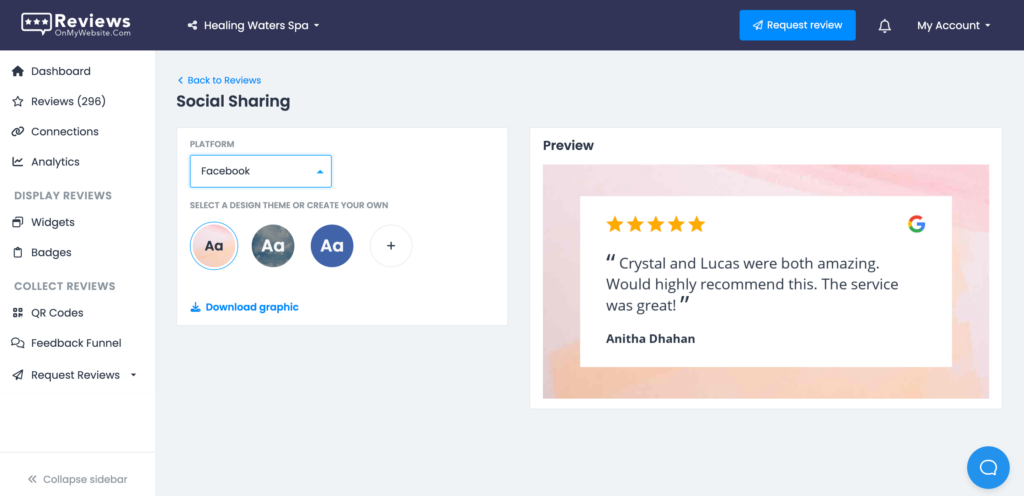Real estate SEO (search engine optimization) helps your website and Google Business Profile appear when buyers and sellers search online.
Unlike paid ads that stop when the budget ends, SEO builds long-term visibility that generates consistent leads.
For realtors, agencies, and independent agents, it’s one of the most cost-effective ways to attract new clients. In this guide, you’ll learn actionable real estate SEO tips and strategies you can implement without extensive technical expertise.
1. Optimize Your Google Business Profile
Your Google Business Profile (GBP) is the cornerstone of local SEO for real estate. This free listing is what shows up in Google Maps and the “Map Pack” results above traditional website links. For many agents, it generates more leads than their website.
Here’s how to maximize it:
- Choose the right categories: Select “Real Estate Agent” as your primary category, then add others like “Property Management Company” if they fit. Google uses categories to match you with relevant searches.
- Add accurate service areas: Don’t just claim your entire state—focus on the cities, zip codes, and neighborhoods where you actually work. Google rewards precision.
- Publish weekly updates: Use the Posts feature to share open houses, new listings, or short market updates. These show up in your profile and prove to clients you’re active.
- Refresh photos regularly: Upload professional headshots, team shots, and property photos. Listings with high-quality photos receive significantly more clicks.
Think of your GBP like a digital storefront. If it looks empty or outdated, potential clients pass by. But if it’s filled with fresh content and useful information, they’re more likely to call.
2. Build City and Neighborhood Pages
If you want to compete with large portals like Zillow or Realtor.com, your site must prove you’re the local expert. City and neighborhood pages do exactly that.
They help you rank for searches like “homes for sale in [city]” or “best realtor in [neighborhood]” while giving visitors valuable context.
Create City Hub Pages
These are your top-level local pages. Include market statistics, a neighborhood map, a list of recent sales, and links to individual neighborhoods. Think of them as the “chapter introduction” to your market.
A strong city page should give buyers and sellers a quick overview of what it’s like to live there, what homes typically cost, and what makes the area unique. You can also highlight popular attractions, upcoming developments, or lifestyle features to keep readers engaged.
When done well, these pages act as both a resource for clients and a signal to Google that your site deserves to rank for city-level real estate searches.
Add Neighborhood Pages
Each page should feel like a mini-guide. Cover schools, commute options, walkability, parks, and average home prices. For example, “[Downtown Phoenix Condos]” or “[Cherry Creek Homes for Sale]” pages attract buyers with very specific intent.
You can also include lifestyle details like popular restaurants, shopping centers, or community events to give readers a feel for the neighborhood. Adding recent sales data or highlighting market trends helps show your expertise and keeps content fresh.
These pages should answer the exact questions buyers type into Google when comparing neighborhoods, positioning you as the trusted local authority.
Link Pages Together
Use breadcrumbs (navigational trails at the top of the page) and contextual links to connect cities and neighborhoods. This helps Google understand your site structure and makes it easy for users to explore.
When a buyer researches areas, they want more than listings—they want context. By building out this content, your site becomes a trusted resource. Over time, this structure gives you an edge over national portals that can’t go as deep on local details.

Manage all your reviews in one place
Get more reviews, build trust, and grow your real estate business with ReviewsOnMyWebsite.
3. Target Keywords That Bring Clients
Not all keywords bring value. Some generate traffic without generating leads. The best SEO keywords for real estate are those tied directly to revenue—words people use when they’re ready to act.
Focus on three groups:
- Buyer searches: Phrases like “homes for sale in [city]” or “condos near [neighborhood].” These are the bread and butter of real estate websites.
- Seller searches: Queries such as “sell my house [city]” or “home value calculator [city].” Sellers often start with valuation keywords, which makes them high-value prospects.
- Trust-driven searches: Many people simply search “best realtor in [city]” or “top real estate agent near me.” Optimizing a service page for these terms captures motivated clients.
Check the Search Engine Results Page (SERP) for each keyword. If Google shows a list of agents, build a service page. If it shows blog guides, write a detailed article. Matching the format helps you compete effectively.
By aligning content with intent, you’ll stop chasing vanity traffic and start attracting qualified buyers and sellers—the clients who actually drive revenue.
4. Create Neighborhood Guides
Neighborhood guides are one of the most effective tools for building trust and capturing early-stage buyers. They answer the lifestyle questions clients care about before they ever step foot in a showing.
When creating guides:
- Cover lifestyle basics: Write about schools, commute times, restaurants, and parks. This is the information buyers search for before contacting an agent.
- Include market context: Add average home prices, trends, and housing types. Someone searching “[Brooklyn Heights townhomes]” expects local data.
- Offer lead magnets: Create a downloadable “Neighborhood Buyer’s Guide” PDF or offer email alerts for new listings. This captures leads early in their journey.
- Keep them updated: Refresh every few months with sales data or new amenities. Outdated content signals to both buyers and Google that you’re not active.
Picture a relocating buyer who types “best neighborhoods in Austin for families.” If your guide answers their questions, you’ve earned credibility—and possibly their business.
5. Add Seller-Focused Pages
Most real estate sites lean heavily toward buyers, but sellers are just as valuable. A dedicated seller page makes you stand out and wins more listing appointments.
Outline Your Process
Walk sellers through your step-by-step approach: staging, professional photography, pricing strategy, digital promotion, and negotiation. Transparency builds confidence.
Go into detail about how you handle each stage—for instance, explain how staging can boost perceived value, or how professional photography can make a listing stand out online.
Many homeowners don’t realize how much strategy goes into a successful sale until you lay it out. By showing them that you follow a proven system, you make it easier for them to trust you with their property.
Add a Strong Call to Action
Use simple CTAs like “Get Your Free Home Valuation” or “Book a Listing Consultation.” Keep forms minimal—just name, address, and phone number.
Too many fields can discourage people from filling them out. You can also experiment with multiple CTA placements on the page: one at the top for quick conversions, another after your process overview, and one at the bottom for people who scroll through.
The clearer and easier it is to take the next step, the more likely sellers are to reach out.
Build Trust With Proof
Display testimonials, reviews, and “just sold” case studies. Research shows that 88.3% of consumers avoid a business after reading negative reviews, so highlighting positive feedback is critical.
Include before-and-after photos of staged homes or a short story about how you helped a client sell quickly in a tough market.
Sellers want proof that you can deliver results, not just promises. By showcasing both numbers and stories, you reassure potential clients that you’re not only experienced but also effective.
6. Collect and Showcase Reviews
Reviews are both a trust-builder and a ranking factor.
According to our research, 86.2% of consumers use Google to check reviews, and more than 78% won’t consider a business rated under four stars.
For agents, reviews often determine whether a client calls you or someone else.
Automate Review Requests
Use ReviewsOnMyWebsite’s automated email and SMS review request sequences to reach out right after closings. Timing matters—most reviews are written within a week of the customer experience. By automating the request, you take the guesswork out of remembering to follow up.
You can even personalize messages with the client’s name or property address to make them feel more genuine. The goal is to make leaving a review so simple that clients can do it in under a minute on their smartphone.
Respond Quickly and Thoughtfully
70% of consumers expect replies within 1–3 days.
You can use ReviewsOnMyWebsite’s AI response feature to draft warm, professional replies in seconds.

For inspiration, check out positive review response examples.
Always thank the reviewer by name, mention a detail about their experience if possible, and close with an invitation to work together again.
When responding to negative reviews, acknowledge the concern and explain how you’ll resolve it—this shows professionalism to everyone reading.
Publish and Share Reviews
Embed reviews on your site with ReviewsOnMyWebsite’s review widget.

Or highlight your best reviews on social media with the social sharing feature.

Featuring reviews on neighborhood pages or seller-focused pages builds credibility right where visitors are deciding whether to call you.
Social sharing also helps extend the reach of your best testimonials beyond your website, allowing past clients to become part of your ongoing marketing.
By turning reviews into visible assets across multiple channels, you maximize their impact.
Collecting reviews is more than just “asking nicely.” It’s about creating a repeatable system that works in the background. Automating requests, replying thoughtfully, and publishing feedback establishes you as a trusted agent.

Manage all your reviews in one place
Get more reviews, build trust, and grow your real estate business with ReviewsOnMyWebsite.
7. Get Listed on Real Estate Directories
Directory listings confirm your legitimacy and boost your local presence. They’re an often-overlooked part of local SEO for real estate.
Here’s how to handle them:
- Claim major profiles: Realtor.com, Zillow, Homes.com, and your local MLS are must-haves. These are where buyers already look for agents.
- Maintain NAP consistency: Your name, address, and phone number (NAP) must match across every site. Even small errors—like “St.” vs. “Street”—can hurt SEO.
- Audit annually: Update office hours, team members, and services at least once a year. Remove duplicates to avoid confusion.
These listings often rank on the first page of Google. If your profile is missing or inconsistent, you’re giving competitors free visibility. Maintaining them is a simple, high-ROI task that strengthens trust and rankings.
8. Earn Local Links That Matter
Backlinks—links from other websites—signal authority to Google. For real estate, local backlinks matter most. They not only boost SEO but also raise your community profile.
Practical ways to earn them:
- Publish quarterly market reports: Share them with local newspapers, bloggers, or chambers of commerce. These organizations often link to valuable resources.
- Give vendor testimonials: If you work with a photographer, lender, or staging company, write them a testimonial. Many will link back to your site as a thank-you.
- Sponsor events: School fundraisers, charity runs, or neighborhood festivals often list sponsors online. That’s both visibility and a backlink.
Generic link building won’t help much in real estate. A single link from your chamber of commerce can be worth more than dozens of irrelevant ones. By focusing locally, you get SEO results that actually drive leads.
9. Write Content That Google and AI Pick Up
Google’s AI Overviews and featured snippets pull content that answers questions directly. If you want your site to appear in these results, your content must be clear and quotable.
- Add Q&A sections: Use common questions like “How much is my house worth in [city]?” as H3 headings and provide direct answers.
- Use short definitions and stats: Keep explanations under two sentences and cite credible sources. For example, link to local government housing data when mentioning average prices.
- Update regularly: Refresh content quarterly with new sales data, property photos, and calls to action. Outdated content is less likely to rank or be featured.
By structuring content this way, you make it easier for Google to pull your answers into AI summaries and for buyers to trust your expertise. It’s a smart way to future-proof your SEO.
Frequently Asked Questions About Real Estate SEO
What Is Real Estate SEO?
Real estate SEO is the process of improving your website and Google Business Profile so you appear in search results when people look for homes, agents, or selling help in your area.
It includes optimizing for the best SEO keywords for real estate, collecting reviews, publishing local content, and building citations. Done right, it generates a steady pipeline of qualified leads without relying on ads. Unlike traditional marketing, it builds authority that compounds over time.
How Do I Do SEO For A Real Estate Website?
Start with the basics: set up Google Analytics and Search Console to track performance. Optimize your Google Business Profile, build city and neighborhood pages, and request reviews from clients. Claim directory listings like Realtor.com and Homes.com.
Publish neighborhood guides and blog content targeting buyer and seller intent. As you grow, focus on earning local backlinks and refreshing content regularly. These steps form the foundation of SEO for real estate websites.
What Is A Good SEO Budget For A Real Estate Company?
Budgets vary depending on your goals and market. Solo agents can start lean by focusing on free tactics like Google Business Profile optimization, reviews, and citations. Brokerages or teams often invest more in content creation, PR, and technical support.
Instead of thinking in fixed numbers, tie your SEO budget to results. Ask: how many leads and listings do I need, and how much is each worth? This mindset helps you view SEO as an investment, not an expense.
Why Are Backlinks Important For Real Estate SEO?
Backlinks are links from other websites that tell Google your content is trustworthy. In real estate, backlinks from local sources—such as a chamber of commerce, community blog, or school website—carry extra weight.
They prove to Google (and clients) that you’re active in your community. One strong local backlink can sometimes outperform dozens of weak, unrelated ones. That’s why focusing on quality over quantity is key for real estate SEO.
How Do I Write SEO-Friendly Real Estate Articles?
Start by identifying the intent: are you writing for buyers, sellers, or investors? Use descriptive headings, short paragraphs, and natural keywords. Include local details like market stats, neighborhood names, or school rankings.
Write in plain language and always end with a call to action that matches intent, such as scheduling a consultation or requesting a valuation.
How Do Local Citations Improve Real Estate SEO?
Citations are mentions of your name, address, and phone (NAP) on directories like Realtor.com, Yelp, and Zillow. Google uses them to verify your business details.
Consistent citations improve your chances of ranking in the Map Pack—the top three business results in local search.
If your NAP information is inconsistent across the web, Google may not trust your business, which can lower rankings. Make it a habit to audit citations once a year and correct any errors.
Stay Consistent to Stay Visible
SEO isn’t about quick wins. It’s about building trust with Google and with clients over time. By consistently updating your Google Business Profile, collecting reviews, publishing local content, and earning community backlinks, you’ll create a compounding effect that keeps working for years.
Real estate SEO tips and strategies like the ones in this guide aren’t a one-and-done—they’re habits. Pick two or three strategies to start with this month.
Next quarter, add another one or two. Over time, you’ll cover all the essentials without feeling overwhelmed.
The agents who win with SEO aren’t necessarily the ones who do everything perfectly—they’re the ones who show up consistently. If you keep improving a little each month, you’ll stay visible, attract more clients, and build a stronger brand than competitors who rely only on ads.